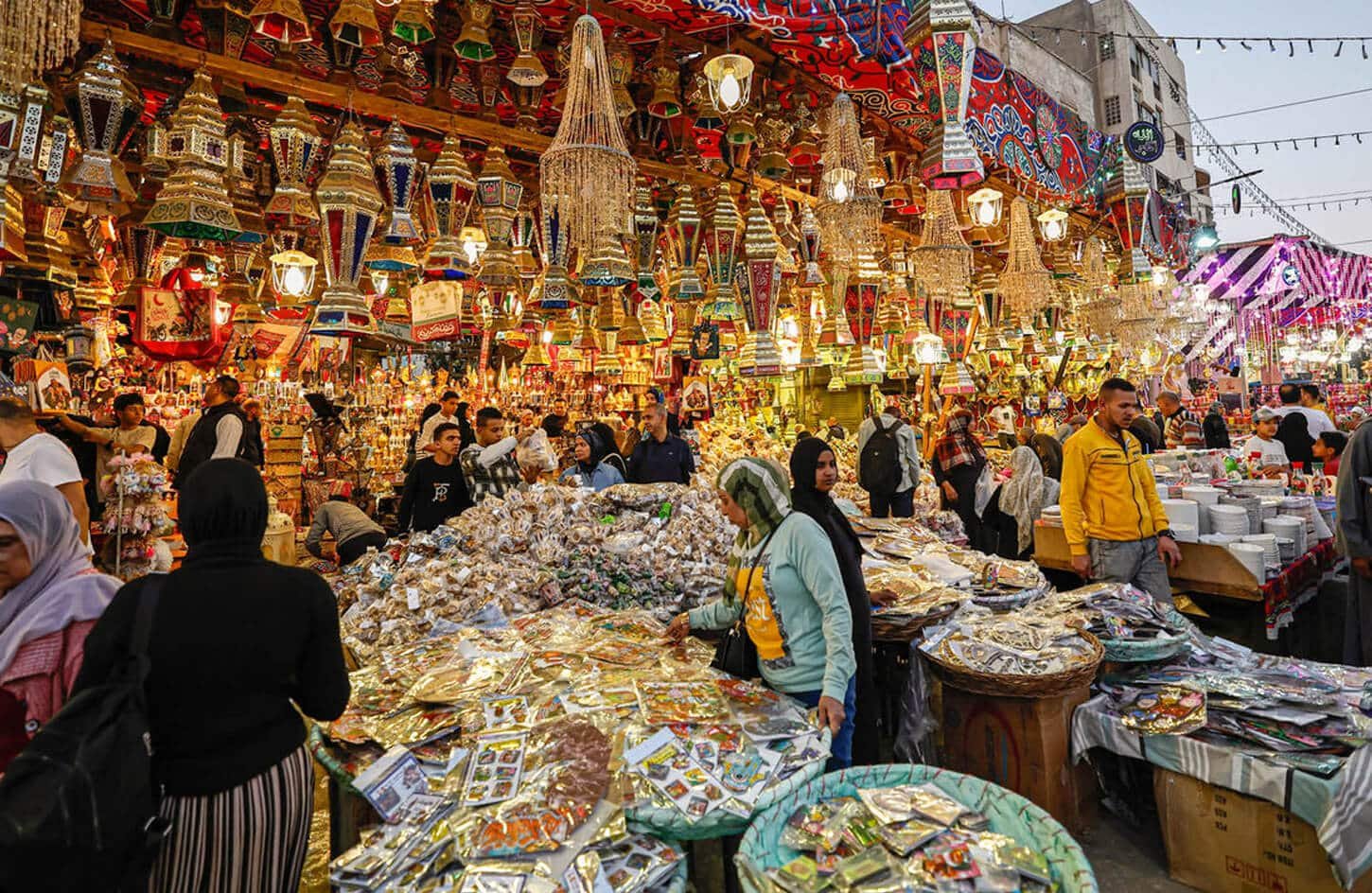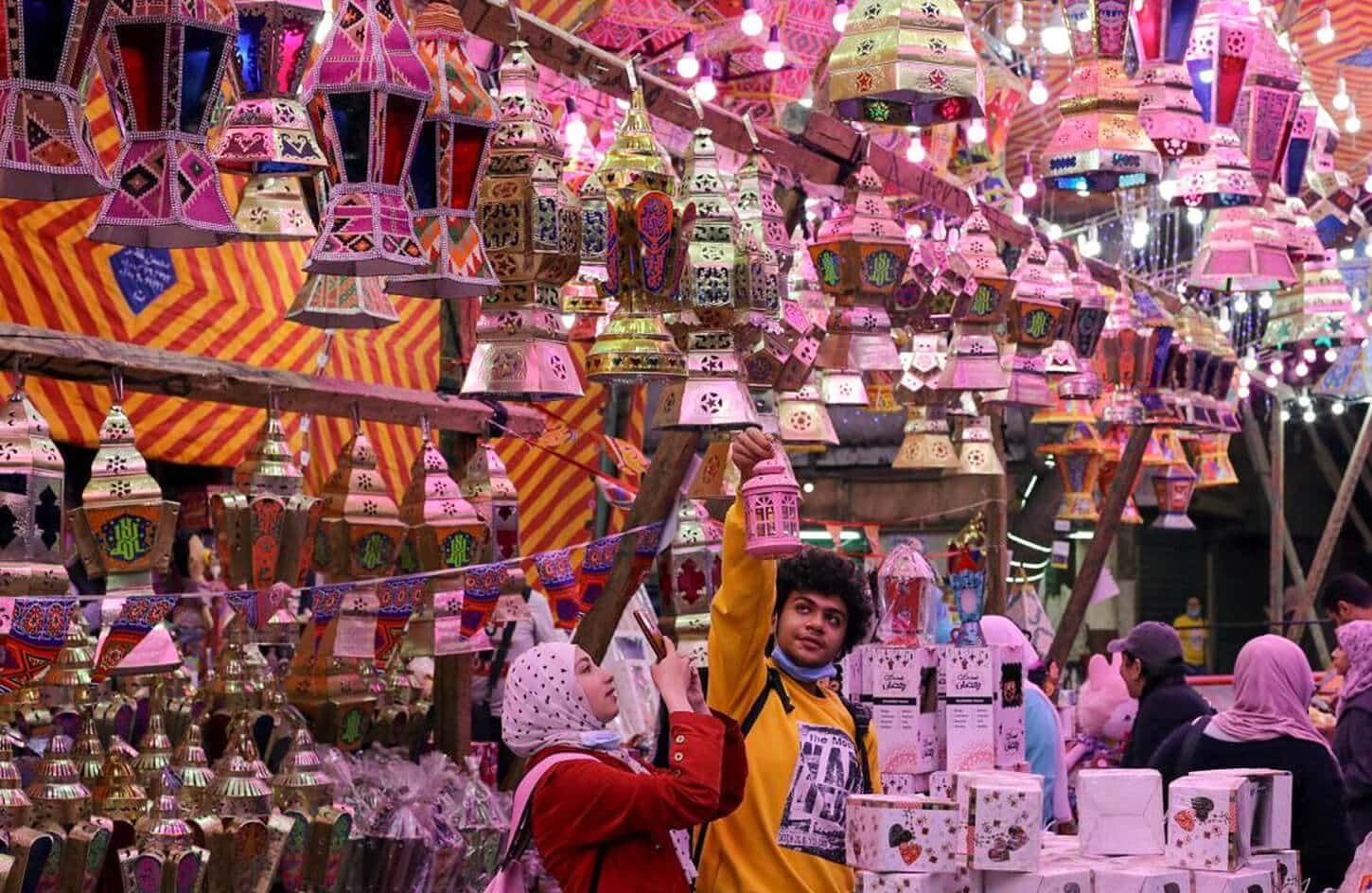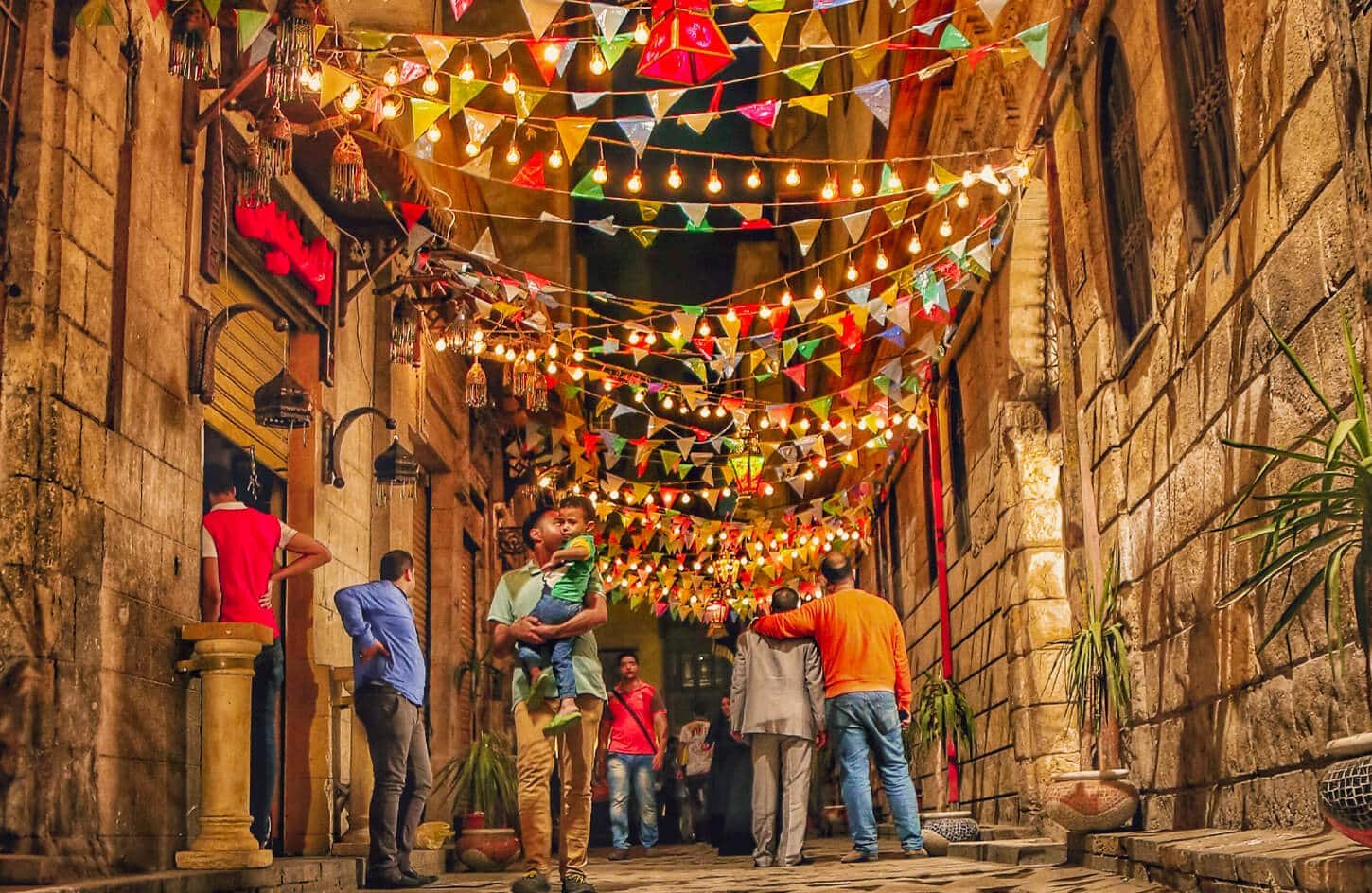As you experience the holy month of Ramadan in Egypt, you’ll dive into a spiritual and cultural world. Fasting, prayer, charity, and community gatherings fill this month. It’s a unique and enriching time.
The Ramadan vibes in Egypt are rich and special. Traditional foods and street celebrations bring joy and togetherness. It’s a time of great happiness and unity.
Exploring the celebration of Ramadan in Egypt reveals its spiritual and cultural depth. You’ll feel the warmth and hospitality of Egypt during Ramadan.
The Spiritual and Cultural Significance of Ramadan
Egypt during Ramadan is full of spiritual practices and cultural traditions. This month is very important in Islam. It’s a time for reflection, self-discipline, and unity among Muslims.
Historical Context, Modern Significance
For a long time, Ramadan has helped Muslims connect with Allah and strengthen their faith. This month, Muslims fast from dawn to sunset. They don’t eat or drink during this time.
In today’s world, Ramadan is still very important in Egypt. It brings people together and promotes community and compassion.
In Egypt, Ramadan is deeply spiritual. Many Muslims go to mosques for Tarawih prayers after dinner. Homes, streets, and mosques are decorated with lights and decorations. This creates a festive yet respectful atmosphere.
But Ramadan is also culturally significant in Egypt. Families come together for Iftar, the meal after sunset. These meals are more than just food. They’re about family, love, and making memories. The traditions, like lanterns (fanous) and communal prayers, show Ramadan’s importance in Egyptian culture.
When and How Ramadan in Egypt Takes Place
If you’re planning to visit Egypt during Ramadan, it’s key to know when and how it happens. Ramadan is the ninth month of the Islamic calendar. Its dates change every year because of the lunar cycle.
The start of Ramadan is marked by the sighting of the crescent moon. This means Ramadan’s dates change every year. Usually, it lasts 29-30 days. During this time, Muslims don’t eat from dawn to sunset.
Knowing when Ramadan is important for visitors. It helps you find the best time to visit Egypt and enjoy the local culture. Ramadan is a big event, but it’s also a chance to try special Egyptian cuisine at iftar, the meal after sunset.
By understanding Ramadan in Egypt, you can plan your visit well. This way, you can respect the local customs and traditions.
Preparing for Ramadan: Egyptian Style
Egypt during Ramadan is special. It’s a time for spiritual reflection, tasty food, and warm welcomes. As Ramadan gets closer, Egyptians get ready to make their homes and communities ready.
Decorating homes and streets with colorful lights and lanterns is a big part of the prep. These are called fanous Ramadan. They make the place look festive and show the joy and spirituality of Ramadan.
Preparing traditional foods is also key. Families gather to make dishes that are both healthy and yummy. They make sweets like kunafah and qatayef, and hearty soups and stews. This makes Ramadan a feast for the taste buds.
Charitable acts also grow as Ramadan nears. People and groups do lots of good deeds. This shows the values of kindness and generosity that Ramadan teaches. It’s a time when the community comes together, showing the true spirit of Ramadan in Egypt.

Daily Life During Ramadan in Egypt
During Ramadan in Egypt, daily life changes a lot. The air is filled with community and spirituality. People fast, pray, and break their fast together.
The streets of Cairo light up at night. Lanterns guide people to markets and Egyptian cuisine at iftar gatherings. You’ll see old and new traditions as families and friends share meals.
People wake up early for suhoor, then fast until sunset. Iftar brings traditional foods like koshari, falafel, and sweet pastries. The evening is for Taraweeh prayers and socializing.
Visitors can dive into Ramadan in Egypt traditions. The Egyptian people’s warmth and hospitality are unforgettable. Whether in Cairo or elsewhere, Ramadan’s spirit is everywhere, making it a special time.
Traditional Egyptian Ramadan Foods
When you experience Ramadan in Egypt, you’ll find a rich food tradition. It’s a big part of the celebration. The food is both nourishing and delicious.
Soups and Appetizers
Egyptians enjoy soups and appetizers to break their fast. Ful medames, a hearty fava bean stew, is popular. So is taameya, Egyptian falafel. These dishes give energy after fasting.
Main Dishes
Egyptian cuisine also has main dishes like koshari, a vegetarian pasta dish. And mahshi, stuffed vegetables. These dishes come with sides like pickles and salads.
Konafa, a sweet pastry dessert, is a favorite treat. These traditional dishes and sweets make Ramadan in Egypt unforgettable.
Enjoying these foods lets you dive into the local culture. Food and hospitality are key in Ramadan. You’ll feel the warmth and generosity of the Egyptian people.
The Art of Egyptian Ramadan Decorations
Decorating for Ramadan in Egypt is a beloved tradition. It fills the air with joy and spirituality. As you walk through the streets or visit homes, you see vibrant displays of lanterns, lights, and colorful decorations. These decorations capture the essence of Ramadan vibes in Egypt.
Egyptian homes are filled with intricate designs and patterns. This creates a warm and welcoming atmosphere. The Ramadan lantern, known as “fanous,” is a key decoration. It symbolizes the guidance and light of the holy month.
Streets and public spaces are also filled with light and color. This makes Egypt during Ramadan a unique experience. In cities like Cairo, the decorations are breathtaking. Towering minarets and historic mosques are lit up against the night sky.
This creates a mesmerizing effect. It captures the spiritual and cultural significance of Ramadan. Being surrounded by these Ramadan in Cairo decorations is unforgettable. It deeply enriches your understanding and appreciation of the local culture.
The decorations in Egypt during Ramadan are not just beautiful. They also reflect the country’s rich cultural heritage and community spirit. They bring a sense of unity and festivity. This makes the holy month special for both locals and visitors.
Experiencing Ramadan in Cairo
Ramadan in Cairo is a special time. It mixes spirituality, culture, and community. Walking through the city, you’ll feel the Ramadan in Egypt vibe.
The city changes during Ramadan. Markets and food stalls buzz with life. You can try koshari, ta’ameya (Egyptian falafel), and mahshi (stuffed grape leaves). Don’t miss out on kunafah and basbousa sweets.
Ramadan in Cairo shines with iftar (break-fast) meals. These are in big tents or traditional restaurants. It’s a chance to taste many dishes and feel the local welcome. You can also see mosques and historic sites, which look amazing at night.
At night, Cairo lights up. It’s perfect for a walk by the Nile or a visit to Khan el-Khalili market. Or just enjoy the lively atmosphere. Ramadan in Cairo offers something for everyone.
Regional Variations of Ramadan in Egypt
Ramadan in Egypt is more than just a national celebration. It’s a mix of local traditions and customs that change from one region to another. As you travel through Egypt during Ramadan, you’ll see that each region has its own special way of celebrating this sacred month.
In Cairo, the capital, Ramadan is full of life. Streets are filled with the smell of traditional foods and lights that brighten the night. But in other places like Upper Egypt, the celebration is quieter yet just as meaningful. It’s deeply connected to local customs and traditions.
The regional variations of Ramadan in Egypt also show in the food. Different areas have their own special dishes. For example, some desserts are only found in certain places, making Ramadan even more diverse.
Whether you’re in the busy cities or the quiet countryside, experiencing Ramadan vibes in Egypt is an adventure. The best time to visit Egypt is during Ramadan. It’s when you can really dive into the local culture and see the warmth and hospitality of the Egyptian people.

Unique Traditions of Ramadan in Egypt
Egypt’s Ramadan traditions are a mix of charity, food, and community. A heartwarming custom is the “tables of mercy” (mawaid rahmah) in public areas. Here, free meals are served to those in need, showing the spirit of Ramadan.
During Ramadan, Egyptian streets smell of delicious foods. Families make traditional dishes like koshari, ta’ameya (Egyptian falafel), and mahshi (stuffed grape leaves). The streets also light up with lanterns (fanous) and colorful lights.
You can dive into Egypt’s culture by joining iftaar (break-fast meal) gatherings. Here, locals and visitors enjoy traditional Egyptian food. The month is also for spiritual reflection, with many mosques hosting tarawih prayers and Quran recitation.
Ramadan in Egypt is a special time. It mixes spirituality, culture, and community. By experiencing these traditions, you’ll understand the Egyptian way of life during Ramadan.
How to Participate in Ramadan as a Visitor
Visiting Egypt during Ramadan can change your life if you do it right. You can dive into the local culture and meet the Egyptian people.
To join in Ramadan, start by following local rules. Don’t eat or drink in public during fasting hours. Try Qatayef and Konafa at Iftar (the meal after sunset).
Going to an Iftar meal is a great idea. Cairo’s restaurants and hotels have Iftar buffets. You can also visit mosques and cultural sites to learn more about Ramadan in Egypt.
Being respectful and open-minded makes your Ramadan experience in Egypt special. Whether in Cairo or elsewhere, joining local traditions makes your trip unforgettable.
Traveling in Egypt During Ramadan: Practical Tips
Planning a trip to Egypt during Ramadan? It’s key to know the local customs and traditions. This will help you enjoy your trip more. Be aware of the fasting hours and respect the culture.
Dress modestly, covering your shoulders and knees. This is important when visiting mosques or government buildings. The Ramadan vibes in Egypt are special, filling the air with a unique atmosphere.
Be careful with your actions during fasting hours. Don’t eat, drink, or smoke in public. It’s seen as rude. Wait until the sun sets and the Ramadan traditions in Egypt are followed.
Being respectful and prepared will make your trip to Egypt during Ramadan great. Learn about the local customs and traditions. You’ll gain a deeper understanding of this fascinating culture.
Conclusion: The Magic of Experiencing Ramadan in Egypt
When you dive into Ramadan in Egypt, you’ll find a mix of spirituality, culture, and community. The Egyptians are eager to have visitors join in their traditions. They also want you to try their tasty food and experience their famous hospitality.
From Cairo’s lively streets to the rest of Egypt, Ramadan is magical. You can join in the fun, taste traditional dishes, and learn about Egypt’s rich culture. This holy month is truly special.
Planning a trip to Egypt during Ramadan is exciting. You’ll see amazing food, decorations, and traditions. Whether you love food, culture, or adventure, Ramadan in Egypt is a chance to connect with locals and make memories that last


